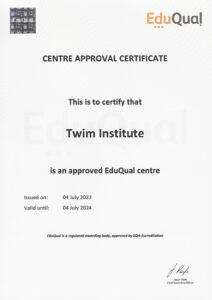
Introduction
Healthy eating is more than just a passing trend or a buzzword; it’s a fundamental aspect of a balanced and fulfilling life.
Good nutrition is the cornerstone of a healthy body and mind, fueling us with the energy and nutrients we need to function at our best.
As a Nigerian, especially one who loves eating meat in its various delicious forms, imbibing a completely vegan diet might prove to be somewhat unachievable. However, I put it to you that you can imbibe this culture of healthy eating even without abandoning your favorite dishes.
Whether you’re a seasoned health enthusiast or just starting on your wellness journey, there’s always more to learn and discover about the power of healthy eating. So let’s dive in and explore what it means to nourish ourselves most deliciously and satisfyingly possible.
Tips to Eating Healthily as a Nigerian
Nigerian cuisine is rich and flavorful, and it’s possible to eat healthily while enjoying a wide variety of Nigerian dishes. Here are some tips for eating healthily as a Nigerian:
- Incorporate a variety of vegetables: Nigerian cuisine is often centered around starchy carbohydrates like rice and yam, but it’s important to include plenty of vegetables in your diet as well. Try adding vegetables like spinach, okra, tomatoes, eggplant, and peppers to your meals. These are not only nutritious, but they also add flavor and color to your dishes.
- Choose lean protein sources: Nigerian cuisine includes a variety of protein-rich foods such as beans, chicken, fish, and beef. To keep your meals healthy, choose leaner cuts of meat, remove visible fat, and avoid deep frying. You can also include plant-based proteins like lentils, nuts, and seeds.
- Limit fried and high-fat foods: Nigerian cuisine includes many fried and high-fat foods like puff puff, akara, and suya. While these foods are delicious, they can be high in calories and unhealthy fats. Try limiting your intake of these foods and opt for healthier cooking methods like grilling, baking, and steaming.
- Use healthy cooking oils: When cooking, use healthy oils like olive oil or coconut oil instead of palm oil or vegetable oil. These oils are lower in saturated fat and can be beneficial for heart health.
- Watch your portions: Nigerian cuisine can be quite filling and it’s easy to overeat. To keep your portions in check, use smaller plates and try to listen to your body’s signals of fullness.
- Stay hydrated: Drink plenty of water throughout the day to stay hydrated. Avoid sugary drinks like soda and sweetened fruit juices, which can add unnecessary calories to your diet.
- Limit your intake of processed foods: Processed foods like instant noodles, canned foods, and packaged snacks are often high in sodium, sugar, and unhealthy fats. Try to limit your intake of these foods and focus on whole, nutrient-dense foods instead.
Some Nigerian Dishes you can Combine for a Healthy Lifestyle
Here are some Nigerian dishes you can consider combining for a healthy lifestyle:
- Jollof Rice: Jollof Rice is a popular Nigerian dish made with rice, tomatoes, onions, and a variety of spices. It can be combined with grilled chicken or fish, and a side of steamed vegetables like broccoli, carrots, or green beans for a well-rounded meal.
- Moi Moi: Moi Moi is a protein-rich dish made from steamed beans, peppers, and onions. It can be paired with a salad of leafy greens and fresh vegetables like cucumber, tomato, and bell peppers, to provide additional vitamins, minerals, and fiber.
- Efo Riro: Efo Riro is a vegetable soup made with spinach, tomatoes, onions, and assorted meats or fish. It can be served with a side of boiled plantains or sweet potatoes, which are rich in complex carbohydrates and provide sustained energy.
- Akara: Akara is a fried bean cake made with black-eyed beans, onions, and peppers. It can be paired with a light tomato sauce and a side of sliced avocado or fruit for a filling breakfast or snack.
- Grilled Fish: Grilled fish is a healthy and low-fat source of protein. It can be paired with a side of coleslaw or cucumber salad, which is low in calories and high in fibre, to create a balanced meal.
Discover more healthy meals here
Reasons to Adopt a Healthy Eating Habit
There are many reasons why adopting a healthy eating habit is beneficial for your overall health and well-being. Here are some of the most important reasons:
Improved physical health: Eating a balanced diet that is rich in whole foods such as fruits, vegetables, whole grains, lean proteins, and healthy fats can help you maintain a healthy weight, reduce your risk of chronic diseases such as heart disease, type 2 diabetes, and certain cancers, and boost your immune system.
Increased energy levels: Eating a balanced diet can help you maintain stable blood sugar levels and provide your body with the nutrients it needs to function at its best, which can lead to increased energy levels and improved productivity.
Better mental health: Some research suggests that a healthy diet may reduce the risk of depression and anxiety, as well as improve cognitive function and memory.
Improved sleep: Consuming healthy foods can help regulate your sleep patterns and promote more restful sleep.
Improved cognitive function: A diet rich in fruits, vegetables, and whole grains has been shown to improve cognitive function, including memory and concentration.
Better skin health: Eating a healthy diet can lead to clearer, brighter skin with fewer breakouts.
Longevity: A healthy diet has been linked to a longer life span and improved quality of life in later years.
Conclusion
Overall, adopting healthy eating habits is a key component of leading a healthy lifestyle and can have numerous benefits for your physical, mental, and emotional well-being.
You can also garner massive knowledge on what healthy and nutritious meals to indulge in and learn how to prepare them as well.
For more inquiries relating to this, you can visit Twim Institute or send a message to +2349033279205. We look forward to welcoming you on board as you take this bold step.




